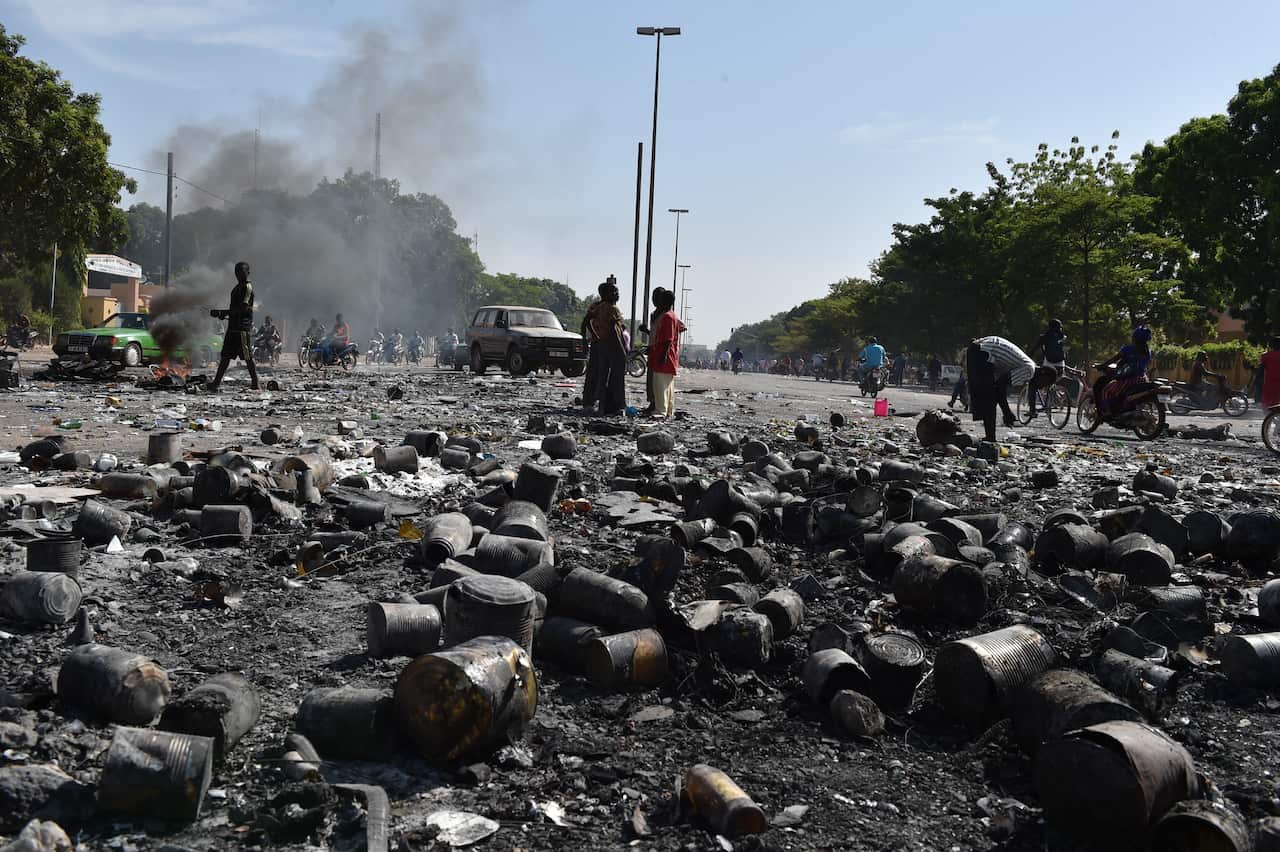Burkina Faso's embattled President Blaise Compaore has announced he is stepping down to make way for elections after a violent uprising against his 27-year rule.
His resignation on Friday came as tens of thousands of protesters demanded that he quit immediately after a day of unrest that saw mass demonstrations, with protesters storming and setting fire to parliament.
"In order to preserve the democratic gains, as well as social peace ... I declare a power vacuum to allow the establishment of a transition leading to free and fair elections within a maximum of 90 days," Compaore said in a statement read on local television.
Army chief Navere Honore Traore said he would take power "in line with constitutional measures", a move which will prove hugely unpopular with the protesters, who see him as a close ally of Campaore. "We do not want General Traore in power. We need someone credible. Traore is Blaise Compaore's henchman," said Monou Tapsoaba, an activist with the opposition People's Movement for Progress.
"We do not want General Traore in power. We need someone credible. Traore is Blaise Compaore's henchman," said Monou Tapsoaba, an activist with the opposition People's Movement for Progress.

People stand on the avenue leading to the burnt parliament in Ouagadougou a day after it was stormed by protesters as lawmakers. (Getty)
A French diplomatic source who wished to remain anonymous said Campaore had left the capital Ouagadougou and fled south, although he was still in the country.
The president had initially rejected calls to resign, prompting the demonstrators to gather outside the city's military headquarters, chanting: "Blaise, get out!"
France's President Francois Hollande vowed that Paris would "contribute to calming" the situation in its former colony, adding that he was sure Compaore would "take the right decision in the coming hours to achieve the calm necessary".
The EU called for the people of Burkina Faso to have the final say in who rules their country.
"Any solution must be the result of a broad consensus and respect the constitution," a spokesman for the bloc's diplomatic service said.
The protests on Thursday forced Compaore to withdraw plans to try to change the constitution to extend his rule, although he had then vowed to stay in power for another year under a transitional government.
The army imposed a dusk-to-dawn curfew and pledged to restore constitutional order within 12 months, in a statement signed by Nabere Honore Traore.
But leading opposition politician Benewende Sankara described the army's move as a "coup".
Opposition leaders gave the death toll from Thursday's violence as "around 30". AFP was only able to confirm four deaths and six seriously injured, based partly on reports from the capital's main hospital.
Share

